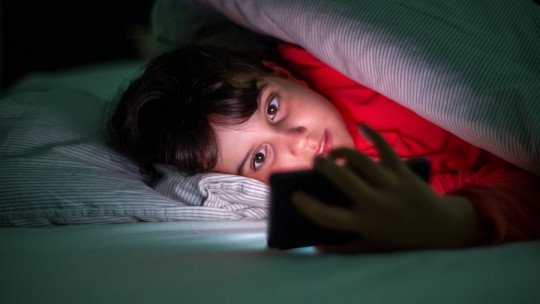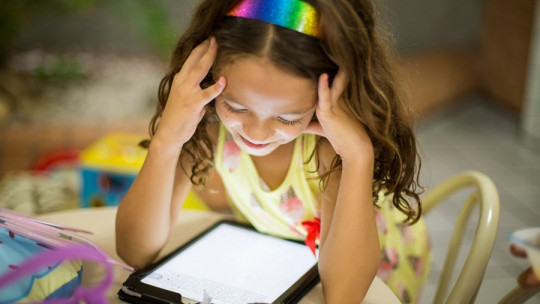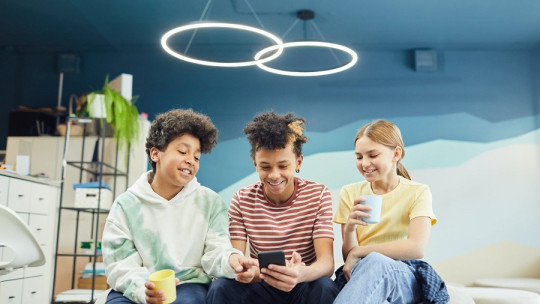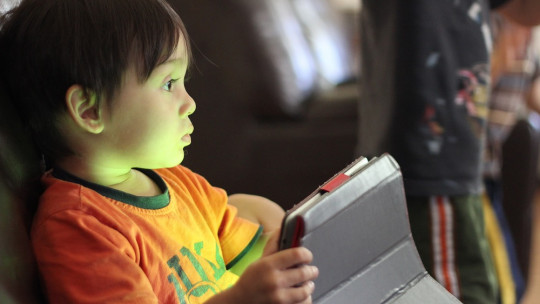
Nowadays, characterized by the unstoppable digitalization and use of mobile devices in practically all contexts of our lives, it is difficult for us to imagine a routine that is not influenced by them. This begins to affect everyone and, worryingly for some sectors of society, also boys and girls during childhood. For the little ones, cell phones and tablets offer a world of possibilities for learning and entertainment, but are they healthy for them?
Scientists talk about the current lack of knowledge that being born and raised under the influence and light of mobile screens will have in the future. There is widespread information about the negative impact of using screens before going to sleep, creating difficulties in falling asleep and maintaining it in a long and healthy way. Adults can be more aware of this and take more concrete or specific measures, but do children receive a good education about this?
In this article, we will focus on commenting the impact of mobile phone use before bed during childhood evaluating its possible negative repercussions and offering a vision away from punishment and seeking a balance between the use of devices and a good sleep routine.
The challenges of mobile phone use in childhood
In a connected world, mobile devices have become a natural extension of our lives. Not surprisingly, this trend has also reached children. Smartphones and tablets are versatile tools that offer young people access to a multitude of apps and online entertainment, but they also present particular challenges that parents and caregivers must thoughtfully address.
The appeal of the screen before sleeping
The use of mobile devices in childhood is increasingly common, and one of the times when children tend to use them is before going to sleep The temptation to play games, watch videos or interact on social networks often replaces the traditional bedtime story. The reason behind this is understandable: mobile devices are entertaining, interactive and, in many cases, calming for children. However, herein lies one of the first challenges: how to balance device use with the need for quality sleep?
The research and its findings
An article published in 2023 and carried out in the United States with a sample of more than 800 pairs of parents and children, studied the complex relationship between the use of mobile devices at night and school performance. Their findings indicate that while using mobile devices before bed can negatively affect children’s school performance in some cases, the relationship is not as simple as it seems.
avoid blame
It is important to note that the objective of this discussion is not to blame parents or stigmatize the use of mobile devices in childhood. Instead of taking a punitive approach, we should seek a fuller understanding and encourage a conversation based on awareness and moderation Mobile devices are powerful tools that can have a positive impact on children’s education and entertainment. However, it is essential that parents, caregivers and educators are aware of the challenges posed by its use, especially before bedtime.
Dream in childhood
To better understand the relationship between the use of mobile devices before bed and its impact on childhood, it is essential to consider the importance of sleep in children’s development. Sleep plays a crucial role in the physical, emotional and cognitive well-being of young people and its absence or poor quality can have significant consequences.
The vital role of sleep
From the first days of life, sleep is essential for a child’s healthy development. During sleep, the brain processes information, strengthens neural connections and regulates emotions. Children who get enough sleep have better school performance, a greater ability to concentrate and solve problems, and a lower risk of developing emotional or behavioral problems
Sleep requirements in childhood
Sleep requirements vary depending on age. Babies and toddlers need more sleep than teenagers, and the ideal amount of sleep gradually decreases as children get older. For example, a newborn may need 14 to 17 hours of sleep per day, while a school-age child may need about 9 to 11 hours of sleep per night.
Sleep and the circadian cycle
Infant sleep is also influenced by the circadian cycle, the biological clock that regulates our sleep and wake patterns. Exposure to light, especially the blue light emitted by mobile device screens, can interfere with this cycle, making it difficult for children to fall asleep. When children don’t get enough sleep, they may experience difficulties in school, irritability, and attention problems.
Effects of using a cell phone before going to sleep
There are some clearly defined effects of using a mobile phone before going to sleep that can be harmful for boys and girls. These are neither unilateral nor uniform and may vary from child to child, but there are trends and risks to consider:
1. The influence of blue light
One of the main concerns related to using mobile devices before bed is exposure to the blue light emitted by screens. Blue light is known to suppress the production of melatonin, a hormone that regulates sleep When children use their devices before bed, exposure to this light can make it more difficult for them to fall asleep.
2. Difficulties falling asleep
Mobile devices can keep children awake for longer than desired. Notifications, addictive games and online content can be irresistible, which leads to children taking longer to fall asleep. This can result in a reduction in total sleep hours and negatively affect your overall well-being in the long run.
3. Alterations in sleep quality
Even if children eventually manage to fall asleep after using mobile devices, the quality of their sleep may be compromised. Sleep patterns may become more disrupted, and deep sleep cycles may become shorter. This can lead to children feeling more tired and irritable during the day, which in turn can affect their school performance.
4. The impact on school performance
The study mentioned above points out that the use of mobile devices before bed is associated with lower school performance in some cases While this association is not necessarily causal, it suggests that excessive device use before bed may have a negative impact on children’s academic performance.
How to find a balance
Although mobile devices can be valuable tools, their use must be carefully monitored and regulated. In conclusion, here are some guidelines and strategies to help parents, caregivers, and educators find that healthy balance:
1. Set time limits
It is important to set time limits for device use before bed. For example, an hour before bedtime might be a good time to unplug devices. Children should understand that this rule is applied consistently.
2. Avoid using devices in the bedroom
Keeping mobile devices out of the bedroom is an effective strategy This helps to associate the rest space with sleep and avoid nocturnal online browsing temptations.
3. Encourage reading before bed
Replacing screen time with reading before bed can be beneficial. Printed books offer a relaxing experience that can help children unwind and prepare for sleep.
4. Set a positive example
Parents and caregivers can influence children’s behavior by setting a positive example If adults also avoid excessive device use before bed, children are more likely to follow their lead.
5. Maintain open communication
Encouraging open communication and dialogue about device use is essential. Children need to understand why certain rules are set and the possible effects of not following them.
6. Monitor content
It is important to monitor the content that children have access to on their devices. Ensuring that content is appropriate and educational is essential to its development.
7. Observe changes in behavior
Parents and caregivers should be alert to any changes in children’s behavior that may be related to device use before bed. If sleep problems, irritability, or difficulties in school are observed, it is important to investigate whether mobile device use may be contributing to these problems.
8. Adapt to individual needs
In the end, the most important thing is to understand that each child is unique, so device use guidelines may vary depending on individual needs and age. Know your children, their needs and how the use of mobile devices at night may be having a significant negative impact on them.








